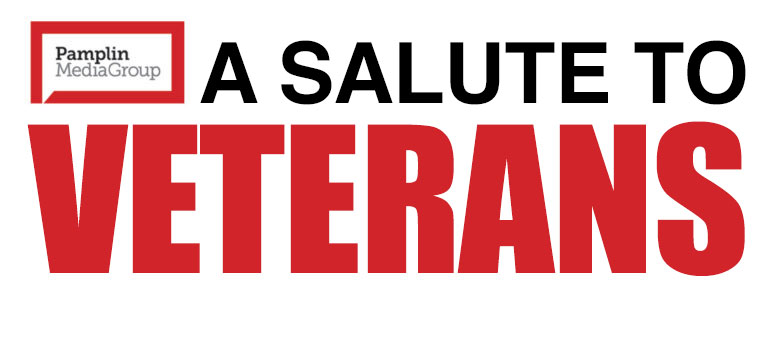Gulf War 2 vet continues to fight PTSD
Former Staff Sergeant Sandra Lee doesn’t consider herself an activist, although she has given some speeches about Post Traumatic Stress Syndrome. Lee signed up out of sheer patriotism after the attacks of Sept. 11, 2011, but her Army career brought a mixture of pride and trauma.
Such is the Army life. Lee started in Portland with the 364th Civil Affairs Brigade but was deployed to a subordinate unit at the battalion level in Santa Barbara, which was then attached to the 1st Cavalry, 91st Combat Engineers in Iraq.
As reported in a PBS documentary about PTSD called “unMASKing Hope,” Lee’s unit vehicle was hit by an Improvised Explosive Device in Iraq, causing her a traumatic brain injury. The team was sent back out after getting medical checks and was later hit by three more IEDs in 2004. Lee was raped twice by men in her unit. She didn’t report it, as she didn’t have the mental capacity to deal with it.
Today, Sandra (pronounced SAUN-dra) Lee is an actor and singer. Portlanders may have seen her at Portland Center Stage in the ensemble and for one night in “Rent” as the understudy for the lead character Mimi. She recently acted in a film called “My Dead Friend Zoe” with Ed Harris, Morgan Freeman and Natalie Morales.
Lee was in the Army for eight years. She says those traumas did define her service for a long time afterward.
“Even while I was finishing up my contract, I resented the military. I wanted nothing to do with it. I had to continue to serve. I was a reservist.” At one point, she worked in the military system as a soldier and on special assignment with a drug intervention section.
Masking up
Her PTSD — the headaches, the insomnia, the depression — got worse in 2005. She fought the VA for three years to get disability, couldn’t pay her rent, had her car repossessed, and felt like she was spiraling.
“I really hated the military and everything that it stood for,” Lee told Pamplin Media. “My unit, they weren’t part of providing me with the support that I needed. At the time, PTSD for all the soldiers returning from Iraq and Afghanistan was still pretty new. Now, it’s kind of obvious. And it’s spoken of, and there’s so many organizations out there (helping).”
She thought her depression was just Portland Seasonal Affective Disorder, but in sunny Oahu, Hawaii, “It was great for a couple of months, but then, of course, it just follows you around. So, I was diagnosed.”
She thought her depression was just Portland Seasonal Affective Disorder, but in sunny Oahu, Hawaii, “It was great for a couple of months, but then, of course, it just follows you around. So, I was diagnosed.”
She was hospitalized at a PTSD Hospital in California. Later, in 2009, she gave a speech in Times Square about her trauma and gained more courage to speak out. Looking back, when the assaults happened “in country,” she felt there was no time to process them.
“It was just repressed because I had so many responsibilities while I was there. There’s just no time for that. My number one priority was just to keep myself and my team alive,” said Lee.
She concludes, “I get asked a lot, do I regret going in? For a while, yes, I did. But now, absolutely not. the experience that I had, good or bad, has put me into the place I am now.” It led to meeting her husband – also a serviceman – and an acting career. In the film, Lee acknowledges the feeling of wearing a mask to keep trauma at bay.
“And people’s psyches and emotions, I can now care about and be able to empathize and sympathize, but also separate myself if I need to.”
The agony and the ecstasy
At first, she says she was “Zombified” by the medications the VA prescribed. Cognitive Behavioral Therapy did not work for her. She’s become interested in treatments for PTSD such as talk therapy, art therapy, psilocybin and MDMA, and volunteered at a psilocybin conference in 2022.
“It scares me a little bit because I don’t do marijuana or anything like that. I don’t like to be not in control of myself.”
Lee can speak well but still cannot order her thoughts in writing. In acting, she consults the script backstage. She has headaches and tinnitus. She wears hearing aids and has a hard time with her knee and shoulder.
What if she had a child that wanted to go off to combat? “I would think I would support them. I definitely gained a lot of experience, good and bad, and bad experiences can be good in the long run.”


